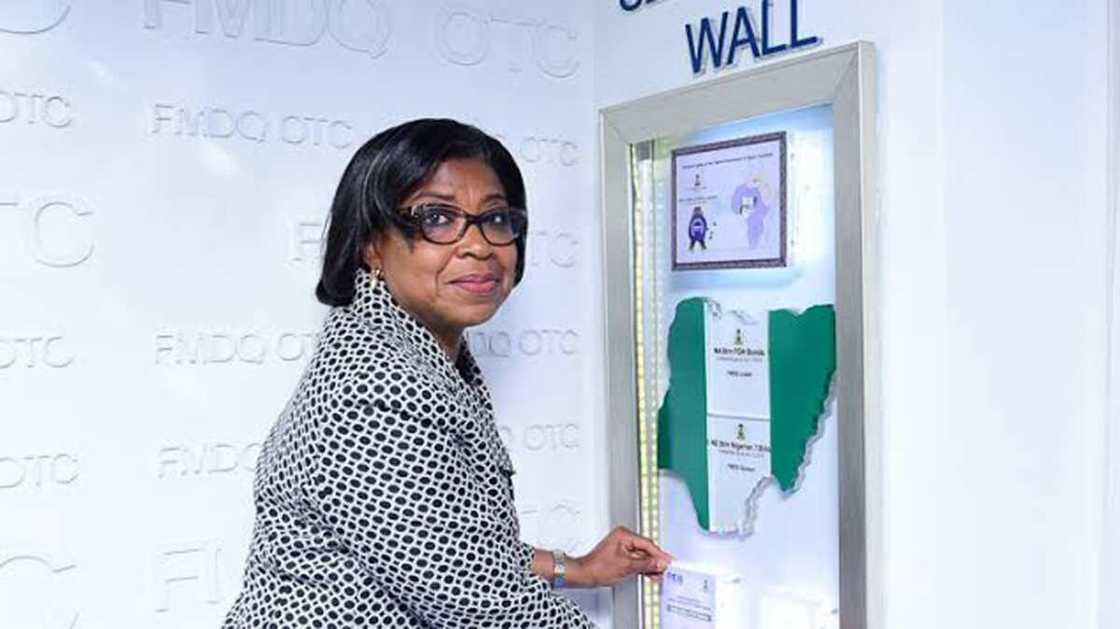DMO Speaks on Government Borrowing Spree as Each Citizen Now Owes N231,200
- Nigeria's public debt has crossed N46 trillion due to the government's continuous borrowing
- The DMO has expressed concern about the rate at which the country's debt is increasing significantly, especially via promissory notes issuance
- The debt management office wants Nigeria to increase revenue, especially tax collection, as it will help reduce reliance on borrowing
PAY ATTENTION: Сheck out news that is picked exactly for YOU ➡️ click on “Recommended for you” and enjoy!
The Debt Management Office (DMO) has identified issues with Nigeria's public debt, which now stands at N46.25 trillion ($103.11 billion) as of December 2022.
The current debt means that each Nigerian owes N231,200 when the total debt is divided among the estimated 200 million population.
Ms Patience Oniha, the DMO Director-General, during an interview on ChannelsTV, highlighted budget deficits, promissory notes, and ongoing borrowing as drivers of the mounting public debt.

Read also
FG suspends proposed increase in taxes on soft drinks, beverages, alcohol, manufacturers happy over decision

Source: Facebook
Oniha expressed concern about the rising debt and emphasised the need for higher revenue to reduce the high debt-service-to-revenue ratio.
PAY ATTENTION: Join Legit.ng Telegram channel! Never miss important updates!
Punch reports that she explained that the debt stock is growing because Nigeria has been running a budget deficit for many years, and these deficits are funded mainly by borrowing.
According to Investopedia, a budget deficit happens when expenses exceed revenue.
Her words:
"The debt stock is growing because Nigeria has been running a budget deficit for many years. In good and bad times, we have borrowed. We have been running budget deficits, and those deficits are funded, 85 to 95 per cent, from borrowing.
“On the one hand, we have accumulated several loans in the past, and the disbursements are ongoing, which contributes to the current debt.
"Also, the government has been using promissory notes to settle obligations, despite not having sufficient revenue or cash to do so. These factors have contributed to the growth of the national debt, and it is the combination of all these factors that has led to the current debt stock”

Read also
FG borrows another N368bn from World Bank, promises to distribute all to 50m qualified Nigerians in June
She also advised the government to focus on boosting its revenue and reducing expenditures to address the issue.
China rejects Nigeria's $22bn loan request, lawmakers approve counteroffer
Meanwhile, in another report, the Chinese Development Bank has rejected the Federal Government's request for a $22 billion loan.
This prompted the House of Representatives to approve a counter-request for another loan.
The rejected loan was intended to fund the Nigerian Railway Modernisation Project's Kaduna-Kano segment.
Source: Legit.ng


